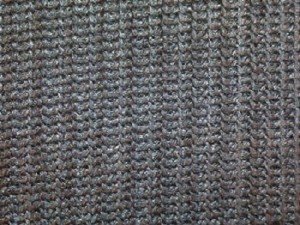
Which screens should be used for high level contamination in hydraulic systems
Advanced hydraulic systems are sensitive to different types of contamination. If left unfiltered, the contaminants can cause early damage of the internal system and result into fluid leakage in the system. These contaminants also clog the flow paths in the filters. Additionally, water in the system fluid can cause corrosion and speed up the wear of the filter components. It is found that most components in the hydraulic systems are replaced due to the severe effects of fluid contamination. Hence, a suitable filtration systems is required to be an integral part of each hydraulic system to separate the insoluble particulate matter and water from the process fluids.
Essential Monel mesh screen filters and strainers are called for eliminating particulate contamination from hydraulic systems. Mesh screen is the core of any hydraulic filter or strainer. It is a crucial part to separate particles from the fluid stream that pass through it. Filters are installed at suitable locations in the system for the required monitoring of the contamination found in the process.
Filters in hydraulic systems should act suitably and efficiently throughout their service life. Hence, a filter is ranked for the smallest size of particles it eliminates and the efficiency with which the particles are removed. Filter function is evaluated by following some lab tests.
Mesh Strainers and filters
A strainer or filter comprises of a filter element that is basically a filter media comprising of millions of tiny holes. A strainer is a coarse filter comprising of a mesh screen. The piece of mesh screen is usually pleated and enclosed in a canister. A bypass valve in the filter protects the system from the burst.
Types of hydraulic fluid filters
Hydraulic filters are made to deal with fluids including petroleum, water and synthetic fluids. Common types of this filter are: suction filters, pressure filters, return line filters and offline filters. The filter technology types include full flow, full flow with bypass and proportional flow.
Hydraulic filter with mechanical type media comprises of woven mesh screens or metal disks . This type of filter removes even coarse particles.
Surface Media
The surface media is made using the woven wire. This media captures the contaminants in the fluid stream on either side of the mesh that is towards fluid flow. The fluid travels through one layer of mesh. As the process used in the production of screens can be accurately controlled, the surface media have the utmost hole size consistency.
Depth Media
This type of filter media has a very high contaminant capture rate even much higher than surface media. When a hydraulic fluid travels through the filter, the fluid follows a torturous path through the filter holes. The screen holds the contaminants through the depth of the filter media as the fluid passes through the screen. The depth media filters are used in the hydraulic applications involving the vigorous contaminations such as in steel and paper plants. Hence, they are the best performance filters for use in the high level contamination processes.
